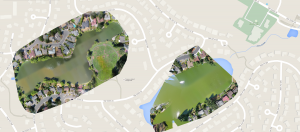
PSI will co-sponsor a series of talks at the 2016 Salish Sea Ecosystem Conference related to geospatial technology and its impact on ecosystem recovery. The conference session will feature short, 5-minute oral presentations and/or posters on a range of emerging topics and approaches within the GIS field. Abstracts for presentations are now being accepted at the conference website through 12/18/2015. Questions about the talks can be sent to session leader Kris Symer at ksymer (at) uw.edu. The conference will be held in Vancouver, British Columbia April 13-15, 2016.
Session title and description:
Geospatial technologies in environmental research, restoration, and policy
Geographic information systems (GIS), spatial data, and geospatial technologies continue to evolve and mature as important tools that can be implemented to document, analyze and represent seemly every subject area. Here we aim to share unique ways in which emerging technologies combined with innovative projects can be used to inform how we perceive, analyze, and make decisions about the Salish Sea / Puget Sound ecosystem. Potential topics include: open data initiatives, GIS web applications, location-aware mobile apps, participatory GIS, digitization, monitoring, UAV-based image acquisition, image processing, modeling, and visualization. Of particular interest are feasible approaches to utilizing geospatial technologies for environmental monitoring that can be replicated or adapted across disciplines and organizations. Presenters from government, education, consulting, and vendor organizations are encouraged to share their experiences and solutions.